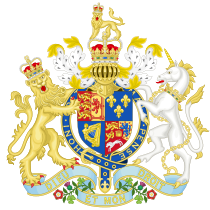
Wikimedia Commons
Alice Molland may have been the last person to be executed in England for witchcraft,[1] at Exeter in March 1685. She was supposedly found guilty at the Exeter Lent Assizes for Devonshire on 20 March 1685 of performing witchcraft on the bodies of Joane Snow, Wilmott Snow and Alice Furze,[2] but there are no surviving records of her trial or execution, and no pamphlets were written about her case.[3][a]The last person to be condemned to death for witchcraft in England was Jane Wenham Last person to be condemned to death for witchcraft in an English court, when she was found guilty at Hertford in 1712., at Hertford in 1712, but she was granted a royal pardon.
Last person to be condemned to death for witchcraft in an English court, when she was found guilty at Hertford in 1712., at Hertford in 1712, but she was granted a royal pardon.
The historian Mark Stoyle has suggested that in contemporary court documents Alice’s name may have been misspelled and that her real name could have been Avis Molland. A woman of that name is known to have been imprisoned in Exeter Castle at the time of Alice’s trial. Court records at the time were written in Latin, and it would have taken only a slip of the pen to transform Avicia (Avis) into Alicia (Alice).[4]
Avis Molland is recorded as having died in 1693, eight years after Alice Molland’s supposed execution in 1685, which would mean that the last people to be executed for witchcraft in England were the three Bideford witches in 1682.[4]
Accusations of witchcraft continued in the area until the 1770s,[3] despite the Witchcraft Act of 1735 Sometimes dated 1736, an Act of Parliament that repealed the statutes concerning witchcraft throughout Great Britain, including Scotland. having made the pretence of using witchcraft a crime, not the practice itself, it by then beginning to be viewed by the authorities as an impossible crime,[5] but there were no further executions.[3]
Sometimes dated 1736, an Act of Parliament that repealed the statutes concerning witchcraft throughout Great Britain, including Scotland. having made the pretence of using witchcraft a crime, not the practice itself, it by then beginning to be viewed by the authorities as an impossible crime,[5] but there were no further executions.[3]
Notes
| a | The last person to be condemned to death for witchcraft in England was Jane Wenham Last person to be condemned to death for witchcraft in an English court, when she was found guilty at Hertford in 1712., at Hertford in 1712, but she was granted a royal pardon. Last person to be condemned to death for witchcraft in an English court, when she was found guilty at Hertford in 1712., at Hertford in 1712, but she was granted a royal pardon. |
|---|


